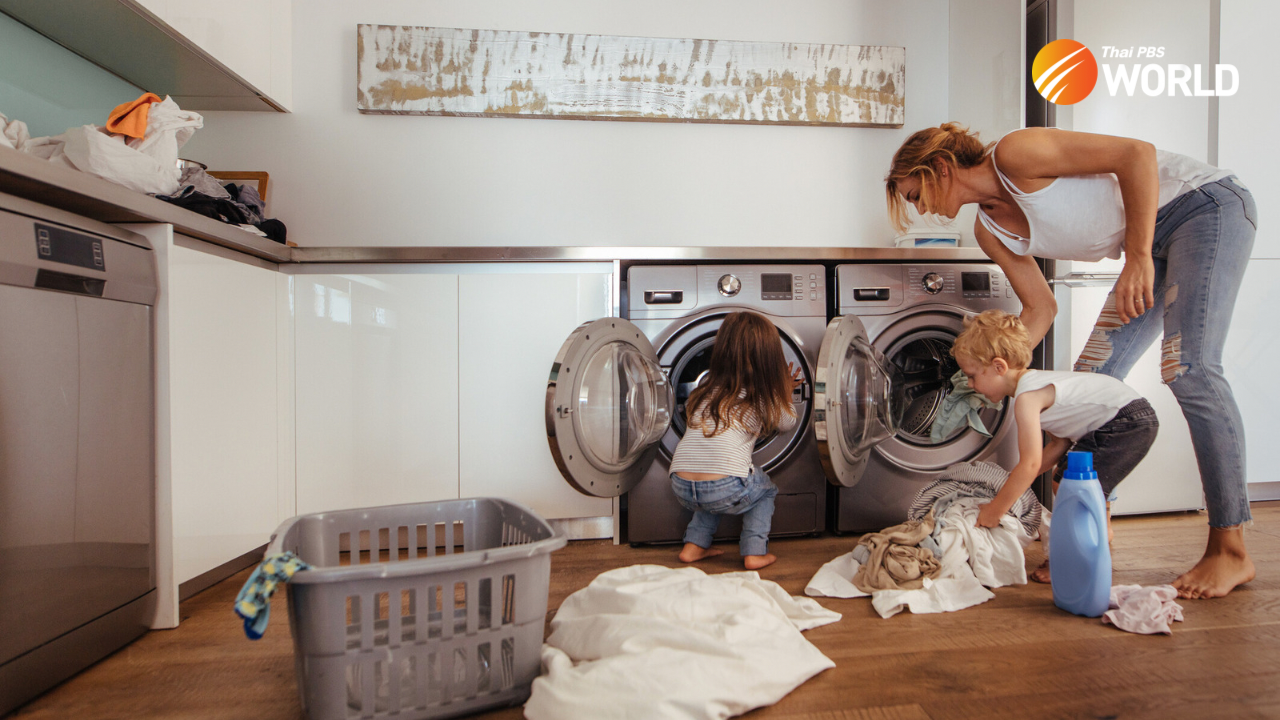OPINION: Household chores are not only mothers’ responsibility

When we think of mothers, unconditional love, care for their children and working tirelessly to nurture and help us grow come to mind. What we also see so often are mothers doing all the child and household care, from cooking, dishwashing, housework and laundry to even homeschooling their children.
All of this is unpaid work and it has become a double-burden for mothers who also have careers. This problem was much more prevalent during the COVID-19 pandemic, where women had to juggle numerous household duties while also having to work from home, while some men did nothing much to ease their burden.
As a result, women have seen a bigger reduction in working hours and labour-force participation and increased unemployment over the last two years, compared to men, according to the World Economic Forum’s Global Gender Gap report.
-Unequal share-
Women in countries with the highest levels of biased gender social norms spend as much as six times the hours on domestic chores and care work compared to men, based on the UNDP’s Gender Social Norm Index 2023 report. Women in countries with less gender bias, however, spend twice as much time on these duties as men.
Meanwhile, the International Labour Organisation’s report, released in 2018, found that women around the world do 76.2% of total unpaid care work, more than three times as much as men. In Asia and the Pacific, this rises to 80%.
Despite developments to improve gender equality in the workplace, with more women taking charge and becoming leaders, these biased gender roles are still imposed on women because it’s simply a “women’s job”. This has prevented women from career advancements or even getting equal pay with men.
Officer-in-Charge of the UN Women Regional Office for Asia and the Pacific, Sarah Knibbs, once told Thai PBS World that the unpaid work, in many countries, tends to fall primarily on women. Women carrying the heavy burden in the household remains one of the barriers that prevents women’s full participation in the workforce. This, she says, is a serious issue that needs to be addressed.
“There’s only 24 hours in a day. When women have to spend many hours doing this, they won’t have the time to focus on certain things in the workplace, unlike like male colleagues,” she explains.
“So women are carrying this heavy burden, and we actually know that, during COVID, this has increased and it’s becoming more disproportionate. This is a very serious concern that we need to address. This is not unique to Thailand or to this region. It is a global issue and this is something we need to really look at changing.”
As for Thailand, which is ranked 74th out of 146 countries on the World Economic Forum’s Global Gender Gap Index 2023, there is high work participation and leadership by women. When it comes to the proportion of time spent on unpaid domestic and care work, however, Thai women spent an average of 11.83% of their time on unpaid work, compared to Thai men who spent only 3.75%. Similarly, in Japan, where its working culture is heavily geared towards men, women spent an average of 15.14% of their time on unpaid work, while men spent only 3.12%
Even though this is a problem in all regions, the gap between men and women in Western countries is lower than in developing countries, indicating that unpaid work is somehow shared between them. In Germany, which ranked 6th on the index, the proportion of time spent on unpaid work by women is 16.10%, while men spent 10.40%.
In the United Kingdom, ranked 15th on the index, women spent 12.65% of their time on unpaid work, while men spent 6.97%. In the United States, ranked 43rd on the index, the proportion of time spent on unpaid domestic and care work for women is 15.33%, while men spend 9.67%.
-Bearing the brunt-
Despite being successful in their careers, a number of working women we have previously interviewed have to bear the double burden – having to work and still perform unpaid duties within the household.
These underlying gender roles reinforce the patriarchal belief that women should be housewives, raising their children at home, cooking and cleaning the house, while the responsibility for breadwinning for the family falls on the men. This includes the social bias, which persists, that women cannot be truly successful at work while raising children.
Even though there are more and more women taking leadership roles and pursuing careers, which were once perceived as male-dominated, the role of literally “putting food on the table” still primarily falls on women.
“I know, historically, it has been that way but, in Europe and America, they share these responsibilities and it’s called unpaid work, because you’re not getting paid for taking care of your child nor for making sure that your household is in order and, on top of that, you’re working,” Pranapda Phornprapha is among those women who have expressed this frustration.
“If the husband, or the man of the house, just helps to preparetwo or three meals for dinner a week, it takes the load off women, so then we don’t have to end up sacrificing our time and our energy [on childcare and home-care], and we focus more on work. So, if that responsibility can be more equal, and if men can have more sensitivity and compassion to understand that women are laid with these responsibilities, I do think it would be helpful.” Pranapda says.
Dr. Karndee Leopairote was also taught since childhood to deal with the household chores, recalling when she was often told by her mother to help in the kitchen, unlike her brothers who had freedom to play as they wish. The positive side to this, though, is that this has molded her to have “a dual personality” where she can work efficiently as a leader in a male-dominated career and be a mother of two. When it comes to raising her own family, however, her husband and even her brothers have to help out.
“I don’t teach the same thing, that household chores are a girl’s job. That is never my conversation. It’s all about living together, making a great team where we need both great women and men working together. Not that I teach equality, but I just don’t make a case on gender bias at all.”
Although these underlying gender norms are a real problem, with people holding such biases, Sarah Knibbs still believes that families should be a good starting point to challenge these norms and for their children to realise that roles and responsibilities are not restricted to one gender.
“I think it really underlies the importance of how we raise children, to try to break the mindset of those gender norms, or try to think differently and provide broader opportunities for both girls and boys to see their futures in a broader way and not feel that they have to follow certain pathways, because [these gender norms] do hold women back in a number of ways.”
-It’s everyone’s responsibility-
Of course, it is not fair to always believe that household chores are the mothers’ job. In fact, it is everyone’s responsibility in a family, and this should be taught now. At the end of the day, we don’t need to wait for our mother to go on strike to realise how much hard work she has to do for our families.
By Nad Bunnag, Thai PBS World






